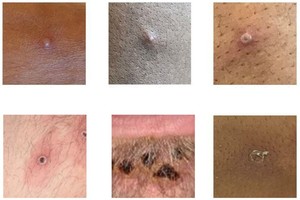In light of clinical experience during this outbreak, the UK Health Security Agency (UKHSA) is updating the case definition for monkeypox.
The symptom list has been expanded to include a single lesion or lesions on the genitals, anus and surrounding area, lesions in the mouth, and symptoms of proctitis (anal or rectal pain or bleeding), especially if the individual has had a new sexual partner recently. This will help both individuals and clinical professionals identify monkeypox symptoms.
The majority of people with monkeypox can safely manage their symptoms at home and there have been no deaths in the UK. Most people experience mild disease but it can cause a significant illness in some, requiring hospitalisation, including for severe pain.
Meera Chand, Director of Clinical and Emerging Infections at UKHSA, said:
We continue to see new diagnoses of monkeypox, passed on primarily through close or sexual contact.
We have updated our case definitions to reflect the clinical presentations that have been seen during this outbreak. It is important to recognise that just one or two genital or anal lesions, or lesions in the mouth can be signs of monkeypox, especially if you have had a new sexual partner. If you think you have monkeypox, stay at home and contact 111 or your local sexual health service for advice.
There is still a need to be cautious and stay alert for symptoms. For many people symptoms can be mild but for some people, hospital treatment may be required.
Guidance and materials are being updated to reflect the new case definition and expanded symptoms list.




